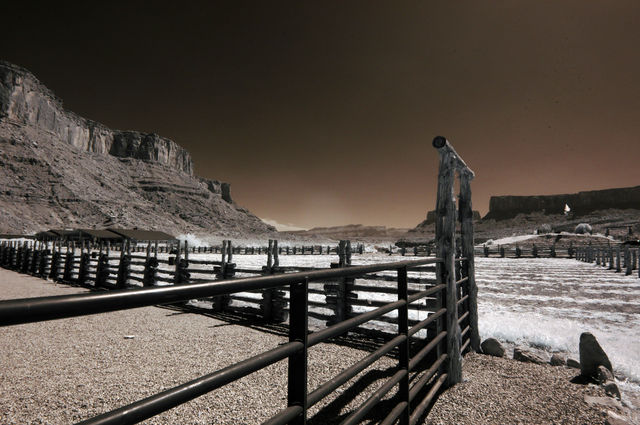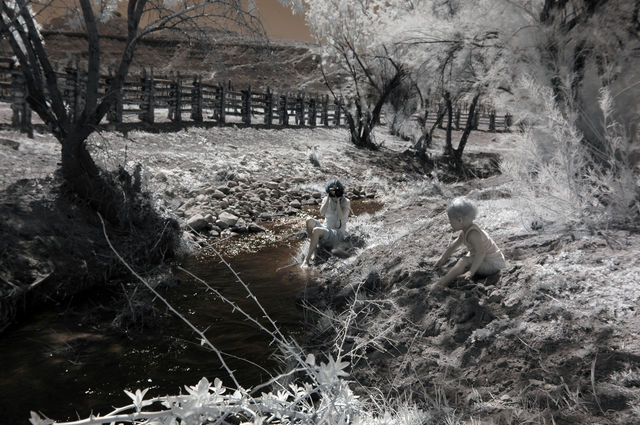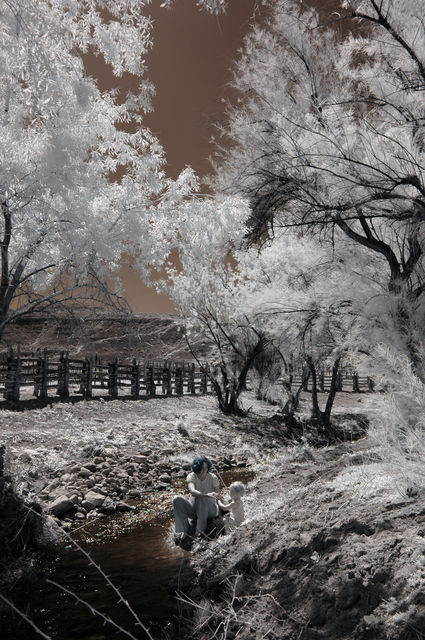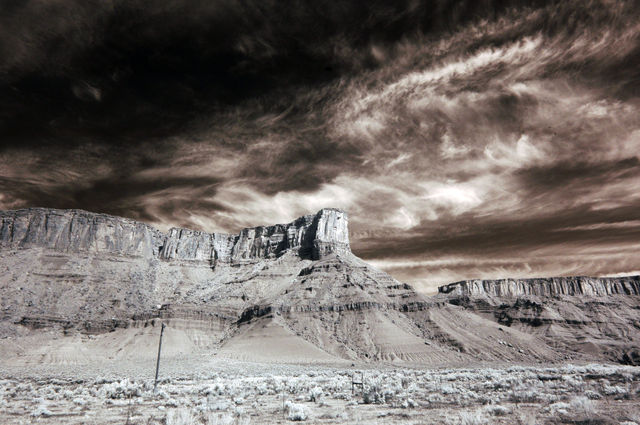I use an R72 filter with a D200. The D200 is arguably one of the single worst cameras for IR since it has a very aggressive IR blocking filter on the sensor. I can't remember off hand but there was a website which listed a bunch of cameras and then rated their resulting shutter speeds before and after IR filter being applied and the D200 scored the worst.
That's reflected in the 10+ second shutter speeds I've used in broad daylight. Compared to the 1/60th using Ilford SPX200 IR film.
here's one:
http://farm3.static.flickr.com/2305/2301198605_f3d72526c7_b.jpg
here's another:
http://farm3.static.flickr.com/2180/2433580880_9c97964125_b.jpg some of the effect comes through quite nicely however I got into darkroom stuff so I now shoot IR film mostly.
digital IR doesn't compare remotely to the effect you get on film:
http://farm3.static.flickr.com/2143/2479741514_700607b218.jpg with the same Hoya R72 filter, unless you start modifying your camera.
I have often considered getting a body modified, but I would still put the filter on the front of the lens (i.e. just pull off the glass, don't put an IR high pass filter inplace). As KmH mentioned the downside you can't see through the viewfinder, however the upside is that metering and autofocus work quite well. You actually get a performance DROP in autofocus if you modify the sensor and install an IR high pass filter since different lenses bend IR light at different angles (CA characteristics), thus what your sensor sees and what the AF mechanism see are slightly different.
Uh...how exactly does IR photography work? I was under the impression IR light can't penetrate glass.
That's UV light. And there's no can or can't. There's just attenuation relative to wavelength. UV gets heavily attenuated, but ultimately some still makes it to the sensor. IR passes through a lot of things. Such as when you take photos of people wearing sunglasses and it looks like they have fake lenses, because the dark sunglasses are completely transparent to IR.
IR does not pass very well through the IR blocking filter that sits on the camera sensor, and the reason it sits there is because IR also penetrates quite well into an photoelectric cell and without it your pictures would come up with all sorts of funny reddish colours.













![[No title]](/data/xfmg/thumbnail/39/39290-dfb3e819bd94a7f30797638ae1ae27cf.jpg?1734173258)




